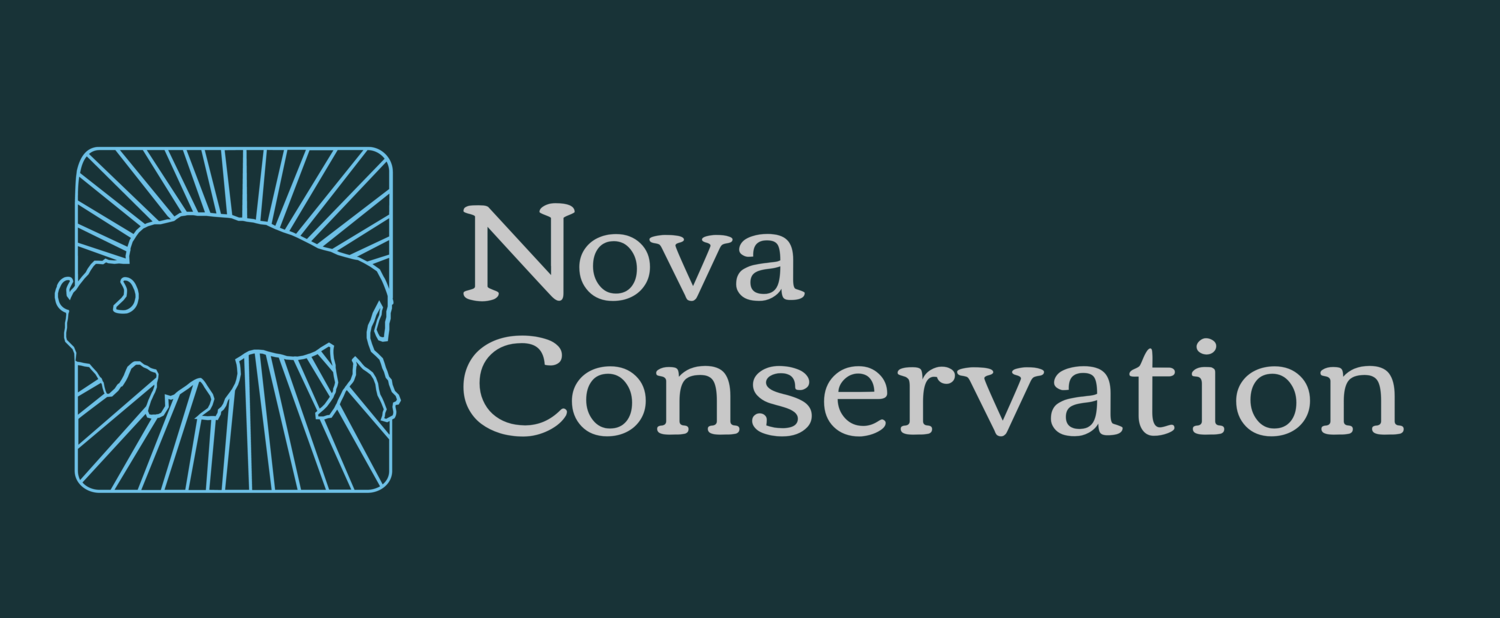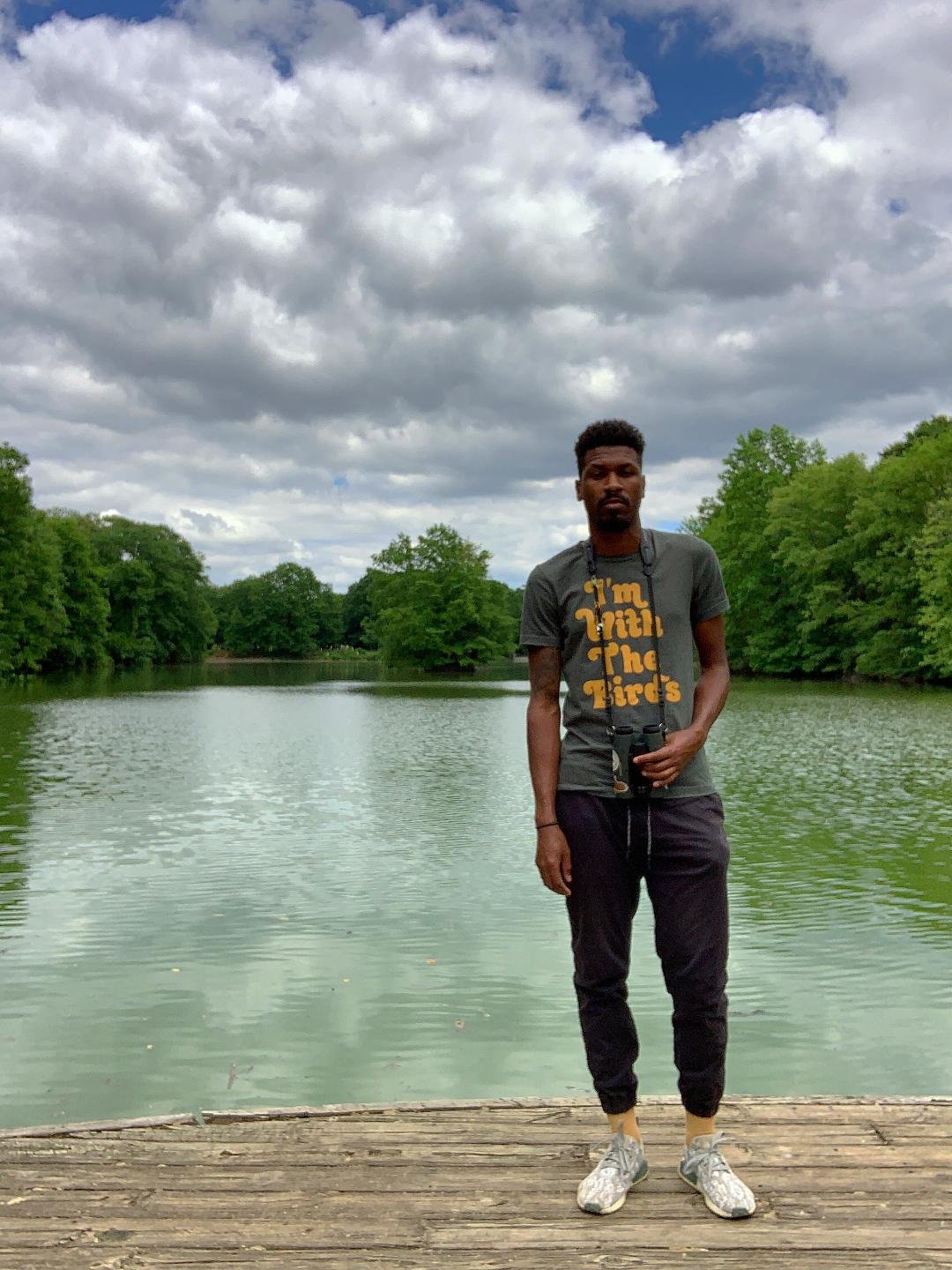A Passion Found Through Binoculars: Interview With Jeffrey Ward
“My life changed 6 years ago. That’s the first time I touched a pair of binoculars. The first time I realized I had a talent, a passion and a purpose. Do what you love.”
– Jeffrey Ward
If the name Jeffrey Ward rings a bell, that’s because this young black birder has been shaking up the world of science and outdoor recreation.
An innocent love for nature as a child has manifested into a passionate career as an adult. Jeffrey is a birder, naturalist and science communicator. But his efforts don’t stop at protecting wildlife — he is committed to diversifying the future of the outdoor world.
As a co-organizer of Black Birders Week and a committee member for BlackAFinSTEM, Jeffrey is paving a path for generations to come, by connecting Black communities with one another and raising awareness of the challenges that Black people face in the outdoors.
Jeffrey has been inspiring communities through storytelling and education since 2016. From having a notable presence on social media to being featured in some of the most well known wildlife organizations and media platforms, such as- The New Yorker, New York Mag, New York Times and National Geographic- there is no doubt that this young man has a story to tell.
Oh, and did I mention he’s been interviewed by people from all over the nation.
It is with much excitement that we were able to interview Jeffrey ourselves! Are you ready to dive in? Then let’s get started!
Could you take us through your professional life and the different roles you have played throughout your career?
So at the moment I’m part of the Steering committee in the BlackAFinSTEM collective and a co-organizer of Black Birders Week. I also lead walks as a freelance bird guide and have led walks for New York City Audubon and the Feminist Bird Club.
What sparked your interest in birding and ornithology? What made you so passionate about it?
I grew up into wildlife and that’s not something you hear from someone who was born and raised in the Bronx, NY.
The interest started with nature shows and field guides and slowly moved to me studying birds on my own from various websites and books.
After seeing a Barred Owl in Central Park for the first time in 2013, I got my first pair of binoculars and that’s what led to this. Birding became so therapeutic for me.
Surrounding myself with the sounds and colors of nature while out birding is a major form of decompression. So just being out, seeing birds whether migrants or resident just provides a certain happiness that I can’t obtain anywhere else.
Why do you think your work is important, especially to conservation?
I’m working to educate people about wildlife and ways to protect them and their habitats. I think it is important because everything serves a purpose and I want to help people learn how to create and maintain a healthy and functional ecosystem. We need to be kind to the planet and everything living on it.
What is the best place you’ve traveled to, either for work or vacation? Why did you enjoy it?
I would have to say Cape May, NJ during the World Series of Birding.
Arguably the world’s most famous birding competition. Participants bird for 24 hours in an attempt to see the most birds throughout the state of NJ.
It’s was a lot of work since I was part of the Carbon Footprint team so we avoided using an motor vehicles. Instead, we birded by bicycle for 24 hours… that’s a long time to be sitting on a bike seat.
There were no lunch breaks and few bathroom breaks– just birding. It took a lot out of me and pushed me to the limit, but we made it to 2nd place with 139 bird species seen.
What’s the most unique animal you’ve seen in the field?
The most unique animal I’ve seen in the field will have to be the Peregrine Falcon. Honestly, it’s just a treat knowing you have such a powerhouse in front of you. A bird that can dive at speeds over 200 mph.
That’s WILD to think about. I feel completely honored to be in the presence of such an animal.
What’s a funny field story you want to share?
One time, my friend and I tried to go birding in the Hamptons — emphasis on the tried.
Within the first 10 minutes, at the very first place we stopped, her vehicle got stuck in sand. We tried multiple ways to get it out but just made the situation worse. So we had to wait for help to arrive to pull the vehicle out… which took hours. Needless to say, we didn’t get to see any birds that day.
If you could give one piece of advice to the younger generation wishing to pursue a path in wildlife, what would it be?
You belong. The outdoors is for you so don’t get discouraged. Knowledge is power, please push to learn something new everyday. Also, don’t be afraid to make mistakes!
You inspire many people across the nation to explore and experience the natural world. What continues to inspire you throughout your journey?
My support system inspires me. I didn’t have much growing up so hearing that I inspire people, that I motivate people or that I am someone’s biggest mentor really inspires me and makes me want to continue this journey.
Whether you’re living in the middle of the busiest city or feel like you don’t belong in the outdoors- I hope Jeffrey’s story was able to bring you inspiration that there is space for you in nature and your passion can begin anywhere.
“Nature is for everyone! The outdoors is for everyone! I’ve always felt like an outsider within the science community but that changes today!” -Jeffrey Ward
Do you want to follow along with Jeffrey? You can find him at the following places:
Twitter: @JeffreyMWard
Instagram: @_jeffreymward
Email: jeffreywardbirds@gmail.com
Thank you for sharing your story with us Jeffrey!
If you enjoyed this article, you can check out other interviews that we have to offer on our blog. Nova Conservation is passionate about supporting diverse voices in life science careers. If you are interested in an interview, please email us: novaconservationtravel@gmail.com.





